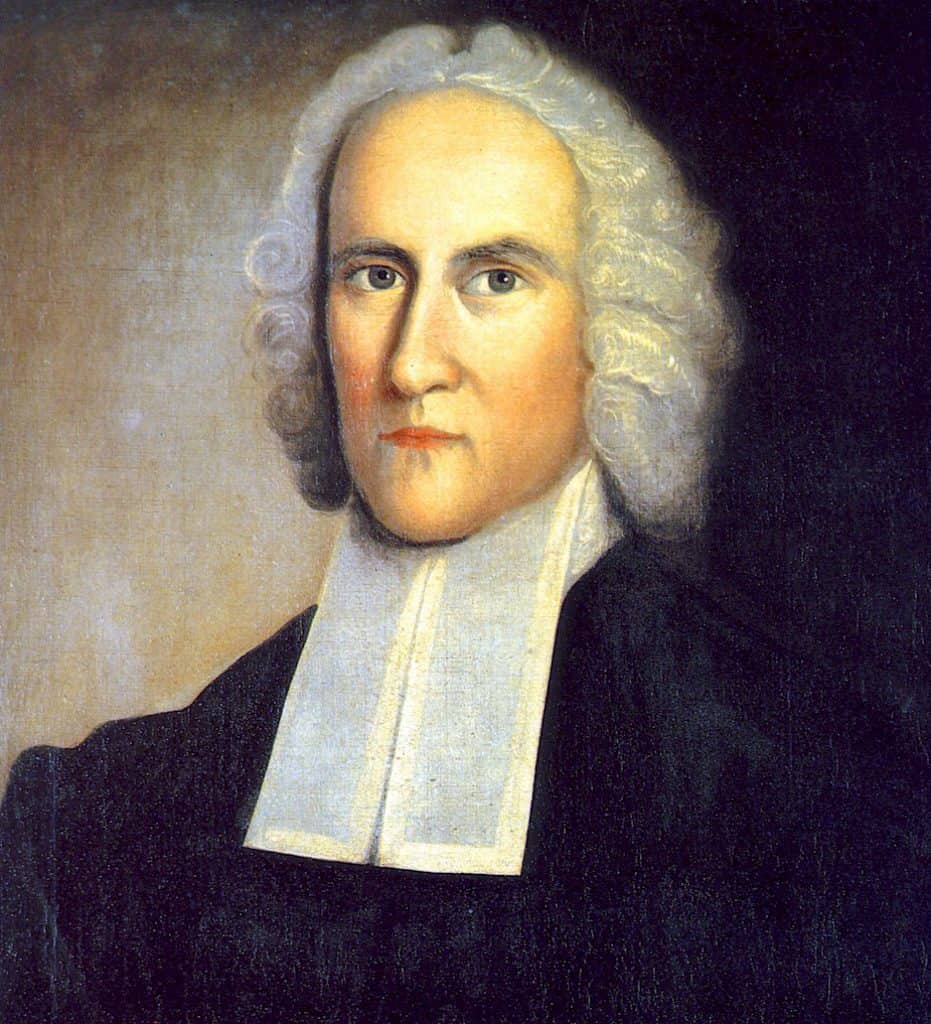⏱️ Estimated Reading Time: 9 min read
Jonathan Edwards’ Freedom of the Will is among the greatest treatises ever written. Scholars and pastors have long explored, debated, promoted, and opposed various aspects of it, and yet I suspect that no one has fully plumbed its depths. In this post, I simply summarize Edwards’ definition of several key terms, I muse on his notion of liberty, and I offer several pastoral implications of his notion of the will.
Definition of Terms
While Edwards purposefully, and sometimes laboriously, defines many terms in his treatise, for the purposes of this post I will summarize only five of them. First, Edwards argues that the will is simply that by which the mind chooses anything (Edwards, 137). The will does not have independent existence, but rather is a function of the mind. Second, the determination of the will, then, is guided by the greatest apparent good in the mind of the moral agent, that is, the one making the determination (Edwards, 142). Third, moral necessity is the “necessity of connection and consequence, which arises from such moral causes, as the strength of inclination, or motives, and the connection which there is in many cases between these, and such certain volitions and actions” (156). In other words, such strong connections exist between desire and doing that in most instances (Edwards would likely say all instances) our desire dictates our doing. Fourth, by way of contrast, natural necessity refers to that which constrains human beings by force of natural cause, for example, gravity, physical pain, or mathematical laws (Edwards, 156-57).
Regarding the latter two terms, Edwards offers several helpful clarifications about their relationship, only two of which I will summarize here. On the one hand, it must be noted that moral necessity may be as absolute as natural necessity. For example, it is a natural necessity for a person to be subject to gravity, even if they create some means by which they can fly. Gravity is a natural law and it constrains our will. Likewise, when the mind of a person is powerfully inclined in one direction, this inclination essentially forbids him to will in the opposite direction. Naturally, he may be able to do so, but practically, and therefore actually, he is unable to do so.
On the other hand, one should note that neither moral nor natural abilities are absolute, for both moral and natural inability exist. Moral inability is the internal opposition to, or want of, inclination to act in a certain manner and therefore it lies inside the will. Natural inability is the incapacity to make a certain choice due to forces of nature and therefore it lies outside the will.
Regarding moral inability, we would probably agree that an alcoholic has the natural ability not to drink, for there is nothing in nature that forces him to do so. However, his faculty of choice, having been altered and constricted by the consequences of past actions, may essentially become incapable of resisting the urge to drink unless acted upon by some external force. Hence, moral inability is not the lack of ability to will but the lack of sufficient inclination to will.
With these clarifications in mind, Edwards defines one more term that is important for the purposes of this post, namely, liberty or freedom. Liberty is the power, opportunity, or advantage to do as one pleases. The opposite of freedom, whatever one might call it, is any hindrance to doing as one pleases. Liberty, therefore, is simply the free exercise of the will by a moral agent (Edwards, 163).
On Edwards’ Notion of Liberty
As I mused on Edwards’ definition of liberty in light of the pastoral ministry, the following train of thought came to mind. First, God’s will defines, restrains, and constrains our will since he is the infinite Creator and we are his finite creation. More specifically, no person can conceive of a higher good than that which God conceives as good. Therefore, to choose the will of God is to choose the highest actual good, and to do the will of God is to do the highest actual good. We may say, then, that the highest form of freedom is the ability to choose the highest actual good as God conceives and reveals it to be. Indeed, the ability to choose and do the will of God from the heart is the highest form of liberty, and may be the only form of true liberty.
Second, God has granted human beings a will, that is, an ability to choose, which implies some measure of autonomous freedom. However, in choosing against the highest actual good we do violence to our freedom to choose because any offense against the perfect holiness of God requires just punishment. Part of this punishment is what Edwards calls moral inability. In other words, when we choose against the highest actual good, we restrict our ability to choose the highest actual good, mainly because it alters our inclinations or affections. Thus, the primary pastoral issue is not whether there is such a thing as free will, and if so, to what extent it operates. Rather, the primary pastoral issue is whether persons who have sinned by choosing against the highest actual good have a will that is free.
Third, regardless of one’s theological disposition, we must answer, no—a moral agent who has sinned against God is no longer free, in any and all circumstances, to choose the highest actual good. Our misuse of the will constrains the freedom of our will. Hence, if a moral agent who has sinned against God is to be free, she must have a Savior—one who acts upon her from the outside to transform her moral inability into positive moral necessity. And if God does not send such a Savior, she will never be free. Indeed, the path to true freedom may only be trod if we are acted upon by God. And praise be to God that he purposed, by the counsel of his will, to send Jesus Christ into the world so that whoever believes in him will not perish but have everlasting life! Praise be to God that he imposes his will upon our will so that our will may be free to do his will!
God accomplishes this miraculous feat in two distinct and interrelated ways. On the one hand, he declares all who believe in Jesus Christ to be just. Justification is an eternal and inalterable act whereby a guilty moral agent is declared not guilty by virtue of the blood sacrifice of Christ, and is furthermore declared righteous by virtue of the perfect righteousness of Christ. This act is effected in the lives of those who believe by means of a mysterious and yet profoundly real union with Christ. On the other hand, on the basis of our justification, God sanctifies those who put their faith in Jesus Christ. Sanctification may be defined as the process by which God transforms us into the image of Jesus until we become holy as he is holy, until we always and only choose the highest actual good as Jesus does. Romans 12:1-2 gives us some insight into how this process of sanctification takes place, and this brings us more properly to the pastoral implications of Edwards’ notion of the will.
Pastoral Implications
The Apostle Paul writes, “I appeal to you therefore, brothers, by the mercies of God, to present your bodies as a living sacrifice, holy and acceptable to God, which is your spiritual worship. Do not be conformed to this world, but be transformed by the renewal of your mind, that by testing you may discern what is the will of God, what is good and acceptable and perfect” (Rom 12:1-2, ESV). If the will is to be free to choose the highest actual good, the mind must be transformed. The only way the mind can be transformed so that it desires and does the will of God, is if it is saturated with the Word of God. This saturation takes place by the will of the Father, the finished work of the Son, and the indwelling presence of the Holy Spirit as he uses his Word to infuse his people with the knowledge of his will and the desire to carry it out (Phil 2:12-13).
We may call this dynamic discipleship which, like sanctification, may be defined as the process by which believing persons are transformed into the image of their Savior, Jesus Christ. Practically speaking, discipleship takes place in four distinct and interrelated ways: proclamation, teaching, counseling, and equipping. By proclamation I mean that we declare the good news of Jesus Christ to those who do not believe which includes local evangelism, mercy-ministry, and global missions. By teaching I mean that we seek to instruct new and seasoned believers to observe everything that Jesus commanded. By counseling I mean that we seek to let the word of Christ dwell in us richly so that we may teach and admonish one another with all wisdom. Thus, counseling has a broad application to the life of the church which at times calls for more focused, personal, and intense attention. Finally, by equipping I mean that we seek to impart certain skills for particular ministries so that each member of the body can play the part he was designed to play by the will of God, for the glory of God, and for the edification of the church.
While every church should think through its process and practices of discipleship, they should not trust in these things to bring about the desired effects, namely, the transformation of God’s people into the image of Jesus. This work can only be accomplished by the will of the Father, the finished work of the Son, and the indwelling presence of the Holy Spirit. That said, what Edwards helps us understand with more depth of insight is just how necessary the Word of God is to the process of sanctification. And since God has willed his Word to be proclaimed and applied to the lives of his people through the shepherds of his church, we who hold this sacred office should fully devote ourselves to his Word in public and in private. For this Spirit-inspired and Spirit-sustained discipline is one of the primary means by which God transforms his people and frees our will to do his will.
All references are taken from Jonathan Edwards, Freedom of the Will (New Haven: Yale University Press), 1957.
Charles Handren is the Executive Pastor at Cross of Glory Baptist Church in Hopkins, Minnesota. His wife Kimberly (1991) is a Spanish and Special Education teacher, and his daughter, Rachel (1994) owns and operates a dance studio in Saint Paul, Minnesota. Charles enjoys reading, cycling, hiking, fishing, and traveling. He holds degrees from California Baptist University (Riverside, California), the American Baptist Seminary of the West (Berkeley, California), and Southeastern Baptist Theological Seminary (Wake Forest, NC).




